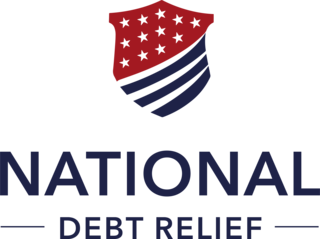As 'Layoff Anxiety' Rises, Here's How to Safeguard Your Finances

Workers in the U.S. are feeling pretty glum about their job security.
Several recent measures indicate workers are increasingly concerned about either losing their jobs personally or the labor market as a whole taking a nosedive.
The Conference Board reported on Tuesday that Americans grew more pessimistic in June about business conditions and job opportunities in the coming six months. The reading marks the sixth straight month of deteriorating outlook on jobs, and it's the latest in a series of dour reports on job expectations in 2025.
Earlier this month, for instance, job-search site Glassdoor said employee confidence in June plunged to the lowest level on record (since 2016) as economic uncertainty and layoff fears spiked. Meanwhile, data from the New York Federal Reserve Bank shows that the expectations of higher unemployment as well as the probability of getting laid off remain at above-average levels.
At the start of the year, 1 in 3 Americans reported having “layoff anxiety,” according to a survey from Clarify Capital, a small-business lending firm. The company defines the term as a “fear of losing your job or worry of never finding another.” The fear of layoffs is especially acute among Gen Z workers, who are generally 18 to 28, as well as remote workers, the survey found. The share of those groups experiencing layoff anxiety jumps to 40% and 47% respectively.
The overall share of workers experiencing layoff anxiety in 2025 marked a slight uptick from 2024, when about 30% reported the same. Since then, subsequent reports suggest that anxiety has only worsened.
If you’re worried about losing your job this year, there are a few steps you can take now to help you prepare.
Make a budget
If you haven’t already, start a budget as soon as you can if you’re worried about layoffs so that you have a clear understanding of the money coming in and going out. That way, if you do get grim news from your employer, you won't be left scrambling to do math while you're potentially negotiating benefits or severance.
It's also the first major step toward creating an emergency fund, which can cushion the financial impact of losing a job. The 50/30/20 budget is one of the most popular strategies, dedicating 50% of your budget toward needs, 30% toward wants and 20% toward savings. The last two categories can be tweaked as needed based on how quickly you need to pad your savings. (Money's budgeting guide can help you get started.)
Get your emergency fund in shape
For most Americans, losing a job means losing their main source of income. That’s why it’s crucial to make sure you build an emergency savings fund while you’re still employed.
Ideally, an emergency fund should be able to support you for at least a three-month period without an income source. Some financial experts recommend saving up to a year’s worth of expenses, but it depends on your circumstances. Some emergency savings is always better than nothing.
According to Clarify Capital's survey, 46% of respondents have less than three months' worth of expenses saved up, with 13% having no emergency savings at all.
Prioritize your debts
Once your emergency savings is in place, you can take a look at your debt. It's never a bad idea to pay down high-interest debt if you can afford to do so without drawing down your emergency savings. Debts such as credit card debt or personal loans, which often have interest rates in the double digits, are high priority and worth chipping away or eliminating while you have a steady source of income.
Large, long-term debts like mortgages or student loans are crucial, too, and you should continue making on-time payments. But if you have wiggle room for making overpayments or bi-monthly payments, consider directing that money toward the debts with the highest APRs.
As you're prioritizing your debts, it's a great time to get familiar with any financial hardship programs your lenders may offer. Some lenders grant temporary forbearance periods or may be willing to wave fees or other consequences for partial or late payments. The Education Department, for example, currently offers a deferment period of up to three years if you lose your job. (However, this relief is on the chopping block in President Donald Trump's "big, beautiful bill.")
Knowing your options ahead of time can help you focus on the debts that absolutely must be paid versus the ones that have some flexibility.
Update your resume
An up-to-date resume is essential to the job search. Especially if you’ve been with your current company for several years, your resume might not include some of your biggest recent accomplishments.
When updating your resume, be sure to include clear stats to showcase your job achievements and impact. These numbers are easier to track down while you still have access to your work files and projects.
Scott Dobroski, a communications executive at the job search site Indeed, previously told Money that updating your resume is the single most important step to prepare for a layoff and job search.
“That is still a tool that almost every single employer will ask for, want or need,” he said.
See who’s hiring
Researching which companies are hiring in your industry before a layoff happens is a great way to prepare and be able to act fast if you do lose your current job.
While you don’t necessarily have to start applying now, it doesn’t hurt to put some feelers out and make connections with hiring managers or workers at other companies.
Of course, if you find a great fit elsewhere before you lose your current job, nothing is stopping you from making the switch now. In fact, that could help your chances at finding a new job given that hiring managers often prefer candidates who are currently employed over unemployed job seekers.
Just be mindful of the new company's financial stability if you're looking to jump ship. You'll want to avoid leaving a current job over fears of layoffs only to find yourself in an even more vulnerable position at your next company as a brand-new employee.
Don’t panic
It might provide some solace to know that workers often overestimate the likelihood of getting laid off.
According to a Money analysis of a decade's worth of data from the New York Federal Reserve, when asked over the past 10 years, an average of 2.7% of workers said they expected to lose their current jobs imminently and would be left unemployed as a result. But that happened only 1.8% of the time.
Unless your company has already announced layoffs — or given clear signs like implementing job buyouts or major restructuring plans — panicking over potential future job cuts isn’t worth your emotional energy. It could also lead you to make some rash decisions.
So long as you have a plan for your finances and a fresh resume in hand, you'll be ready for whatever might be coming at work.
More from Money:
Follow the Money? Here Are the Stocks Hedge Funds Bought and Sold in the First Quarter





